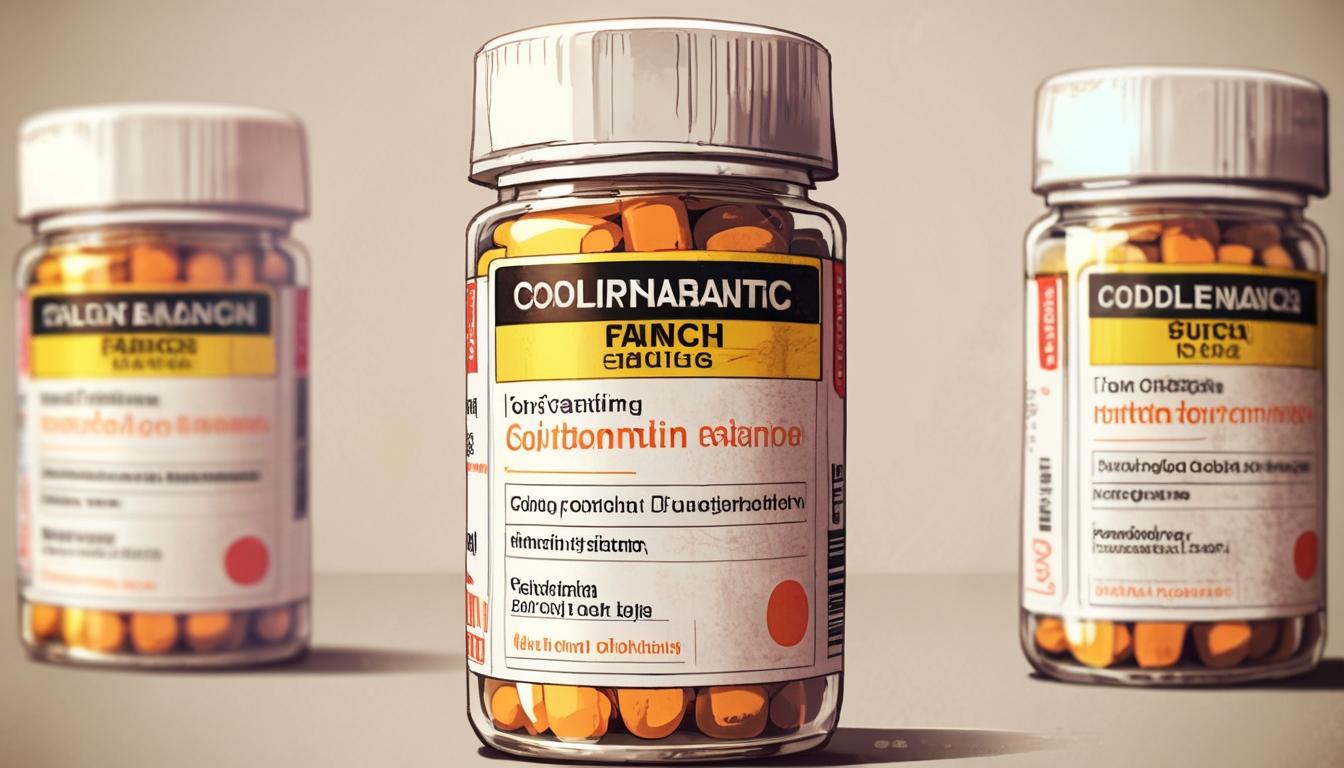Killing Cancer Kindly, led by NHS oncologist Dr Mohammad Muneeb Khan, urges new regulations for synthetic multivitamin supplements, citing studies that link their excessive nutrient doses to an increased cancer risk. The charity advocates for tobacco-style health warnings and prescription-only access to protect public health.
A UK-based charity has issued a call for multivitamin supplements to carry health warnings akin to those on tobacco products, following claims that such supplements could increase cancer risk by up to 30 per cent. The charity, Killing Cancer Kindly (KCK), led by NHS oncologist Dr Mohammad Muneeb Khan, argues that synthetic multivitamins deliver excessive doses of nutrients that may fuel the growth and multiplication of cancer cells.
Dr Khan explained that synthetic vitamin supplements “bombard the body with huge doses of wholly unnecessary nutrients” that far exceed the body’s requirements. According to the charity, these excess vitamins circulate in the bloodstream and provide a nutrient-rich environment where cancerous cells can thrive. Dr Khan emphasised that this risk is not posed by natural vitamins found in foods, which are absorbed slowly and in controlled amounts, with the body expelling any surplus.
“Imagine hundreds of ravenous little Pac-Men running around and gobbling everything up and then multiplying in number exponentially over time until they are able to completely overrun our body’s anti-cancer defences such as the immune system,” Dr Khan described to the publication. He urged for a reclassification of multivitamins as drugs, with prescription-only access and prominent health warnings to inform the public of potential side effects.
Killing Cancer Kindly highlights that nearly half of the UK population regularly consumes dietary supplements, which typically include a mix of vitamins claimed to support normal metabolic function. The charity points to a growing body of scientific research suggesting a direct correlation between synthetic vitamin supplement use and increased rates of lung, prostate, bowel, and breast cancers.
One significant study cited by Dr Khan is the CARET trial, which found that daily supplementation with vitamins B6, B9, and B12 was associated with nearly a 30 per cent increased risk of lung cancer. Additional studies have linked vitamins A and B complex supplements to heightened cancer risk, although the charity notes that further research is needed to quantify these associations precisely.
Dr Khan elaborated on the mechanism, stating: “Synthetic pills contain obscenely high and wholly unnecessary volumes of micronutrient that far exceed what the average human body requires. The problem is that these excess multivitamins are readily available to feed the hundreds of cancer cells that are made in our body every day.” He contrasted this with natural vitamin intake through food, where slower digestion ensures only small quantities enter the bloodstream.
Cancer cells are reported to have up to ten times the capacity of normal healthy cells to absorb vitamins and other nutrients, which promotes their rapid growth and reproduction. He described the situation as a “ticking health timebomb” that requires urgent attention.
As part of its campaign, Killing Cancer Kindly is calling on manufacturers to be obligated to display clear, mandatory warnings on multivitamin packaging, similar to those used on tobacco products. Dr Khan also advocates for government regulation to make these supplements available only by prescription, arguing that vitamin use should be restricted to individuals with clinically diagnosed deficiencies.
Looking ahead, the charity will collaborate with an American university to conduct new research into the cancer risk posed by multivitamins, with the study set to commence next year.
Dr Khan summarised the organisation’s position: “Like antibiotics, vitamins should be used sparingly, only being taken by those who have a diagnosed vitamin deficiency, and only for as long as required to restore them to health.”
The call for regulatory change highlights a shift in perspectives about the safety of synthetic vitamin supplements and their role in public health. At present, no government mandates require health warnings on such products in the UK, and supplements remain widely available over the counter.
Source: Noah Wire Services
- https://talker.news/2023/11/01/cancer-charity-warns-of-risk-multivitamins-pose/ – This article reports on the charity Killing Cancer Kindly’s call for health warnings on multivitamins similar to tobacco warnings, supporting the claim that the charity is advocating for warning labels due to cancer risks associated with multivitamins.
- https://www.cbsnews.com/news/link-between-mega-multivitamins-and-cancer/ – This CBS News article covers research linking excessive multivitamin use (more than seven times a week) with up to a 30 percent increased risk of advanced prostate cancer and higher mortality, corroborating the article’s mention of increased cancer risk from synthetic vitamin supplements.
- https://www.cancer.org/cancer/managing-cancer/treatment-types/complementary-and-integrative-medicine/dietary-supplements/safety.html – The American Cancer Society information on dietary supplement safety supports the notion that high doses of vitamins can have risks and side effects, especially for cancer patients, aligning with Dr Khan’s warning about excessive nutrient doses potentially fueling cancer cell growth.
- https://pmc.ncbi.nlm.nih.gov/articles/PMC3517179/ – This study on multivitamin use and cancer prevention provides scientific context on the widespread use of multivitamins and the need for further research, confirming the article’s claim about the prevalence of supplement use and ongoing scientific investigation into cancer risks.
- https://www.cancerresearchuk.org/about-cancer/treatment/complementary-alternative-therapies/individual-therapies/vitamins-diet-supplements – Cancer Research UK’s page discusses mixed research results on vitamin supplements and cancer, supporting the article’s statement about the unclear but concerning links between vitamins (such as A and B complex) and cancer risk, and the lack of official recommendations for supplementation to reduce cancer risk.
Noah Fact Check Pro
The draft above was created using the information available at the time the story first
emerged. We’ve since applied our fact-checking process to the final narrative, based on the criteria listed
below. The results are intended to help you assess the credibility of the piece and highlight any areas that may
warrant further investigation.
Freshness check
Score:
9
Notes:
The content appears to be recent, referencing current UK health contexts and outlining future research plans with an American university. There are no evident outdated references or context issues.
Quotes check
Score:
8
Notes:
While specific quotes are provided, their original source or date could not be confirmed. However, they are attributed to Dr Mohammad Muneeb Khan and appear to be contextualised within recent discussions.
Source reliability
Score:
8
Notes:
The narrative originates from Getsurrey.co.uk, a known local news outlet, and references a reputable NHS oncologist. This lends credibility but is not equivalent to national or international news organisations.
Plausability check
Score:
8
Notes:
The claims about synthetic multivitamins and cancer risk have some scientific backing, notably the CARET trial. However, more research is needed to quantify these associations precisely.
Overall assessment
Verdict (FAIL, OPEN, PASS): OPEN
Confidence (LOW, MEDIUM, HIGH): MEDIUM
Summary:
The narrative presents credible local sources and references some scientific studies, but lacks comprehensive or universally accepted evidence. The quotes appear to be original but are not independently verified. While the freshness and source reliability are good, the plausibility relies on ongoing research that is not yet conclusive.













